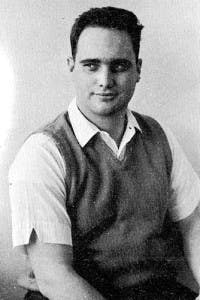A former Associated Students president and editor of The Western Front from Sedro-Woolley died in Mount Vernon on Tuesday, Oct. 27, after a long fight with cancer.
Noel Bourasaw, 71, served as AS president of Western Washington State College, the previous official name of Western, from 1968-69 during the Vietnam War era.

Bourasaw also worked as managing editor of The Collegian, the past name for The Western Front, in 1962 and again in 1966. He rose up the ranks in the newsroom to become editor-in-chief in 1967, the same year he gave “The Western Front” its name.
When Bourasaw came to Western after serving in the army as a brevet corporal, some students were intimidated by his age and stature, said Bourasaw’s classmate John Servais.
Servais remembers a student during the AS presidential election of 1968 asking him, “Is it okay to vote for someone with a beard?”
In this and many other ways, Bourasaw was unlike any of his predecessors, Servais said.
When the student body elected him into office, Bourasaw set out to fulfill his campaign promise to make Western a “Free University.”
The fledgling experiment, called Northwest Free University, offered tuition-free, alternative courses for community members. The program was today’s equivalent of free select course offerings — except the “faculty” were all unpaid volunteers, Servais said.
The program was controversial in the eyes of the administration, but Bourasaw wasn’t one to care about opposition, Servais said.
“He just made it happen.”
Bourasaw appointed former political science professor Bernard Weiner to administer Northwest Free University after the department decided not to renew Weiner’s teaching contract, despite students voting him “best teacher of the year,” Weiner said.
Because of Bourasaw’s idea, thousands of community members were able to take advantage of the program’s many courses, from music lessons to wilderness survival skills, he said.
“That was Noel [Bourasaw]’s baby, and it fed off his sense of adventure and fun,” Weiner said.
Bourasaw and Weiner became friends before they started Northwest Free University while active in the anti-Vietnam War movement and the Campus Christian Fellowship, he said.
During his presidency, Servais said Bourasaw never allowed a Vietnam War protest to get out of hand.
While there was turmoil on college campuses around the nation, Western's administration gave Bourasaw unprecedented freedom. He changed the dynamic between the students and the administration to give the AS Board of Directors more autonomy, Servais said.
They were afraid of jamming Bourasaw because they were afraid of a big student takeover or something similar, he said.
In the eyes of his classmates, Bourasaw was a revolutionary figure, Servais said. Boisterous and jolly, he exuded a presence that couldn’t be ignored, he said.
“He almost looked like Fidel Castro,” he said. “But he got along with everybody. He could walk into a room and even people who were mad at him could still get along with him.”
Servais and Bourasaw first met when Servais was trying to keep established what would later become the Outdoor Learning Center, at that time simply called the Outdoor Program, he said.
Because starting a new program would mean diverting funds from other clubs, many students protested, Servais said.
In the spring of 1968, Bourasaw protected the Outdoor Program’s budget, and kept it from being torn down, he said.
“He didn’t care that much about hiking or going on beach walks at La Push,” Servais said. “But he knew what I was doing was good for the school, good for the students. Noel [Bourasaw] protected that.”
When Bourasaw graduated, he moved to California, where he wrote for a number of wine magazines and eventually became the first executive director of the Washington Wine Institute, according to Bourasaw's website, Skagit River Journal.
Servais thought Bourasaw could have been a U.S. senator, but he chose to pursue wine instead, Servais said, laughing.
When he retired, Bourasaw moved back to his home town of Sedro-Woolley, where he became steeped in the history of Skagit County. He maintained the Skagit River Journal, a website exploring the history of the Northwest with a particular focus on Sedro-Woolley and the Skagit Valley.
Any time someone had a question about Skagit County, “Check with Noel,” was the immediate response, said Jo Wolfe, Skagit County Historical Museum director of development.
History came naturally to him, Wolfe said. “It was in his DNA, maybe.”
Bourasaw was very oriented around good things, Servais said.
“It was true to his character. He was real that way and that’s the incredible thing about Noel .”





